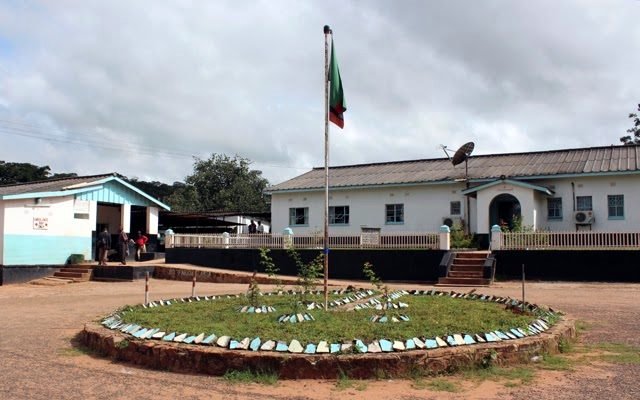Anna Sewell, English novelist, once said “It is good people who make good places.” Such can be said of the people of the Concord/Farragut area who would attest to the fact that it is a wonderful place to live and raise a family.
Conversely, a good place also develops good people: those that contribute to community outreach thereby improving people’s lives often with far-reaching effects.
Perhaps a little-known fact is the story of one of our own who spent a lifetime quietly working for those less fortunate. Frances Elizabeth Woods (1922-2002) was the daughter of Grover and Mary Woods of the Concord community and was a member of Crichton Memorial Baptist in Concord. Shortly after she graduated from Farragut High School in 1939, Frances became enrolled at Tennessee Temple College and later Nevell Nurses’ Training School of Chattanooga. That led her to the position as supervisor of nurses at the Campbell Clinic in Chattanooga.

Frances Elizabeth Woods Warburton (Photo from Knoxville News Sentinel September 17, 1955)
While serving in this capacity, Woods came under conviction that she should become a medical missionary. Although she was advised that she was beyond the age that most mission boards would accept, she insisted on going and enrolled in Tennessee Temple Bible Training. In December 1950 she was sent out by the Southern Rhodesia Mission and left Tennessee to become a medical missionary administering to a leper colony at Kaonde Mission, Northern Rhodesia (now Zambia), in Africa. Life for Frances was very different from life back in Tennessee. The mission was a three-room mud facility, she lived in a grass hut outside of the mission compound, had to carry water from a half mile away, and her mode of transportation was a bicycle.
Leprosy was not an understood disease, and those inflicted were banished from their communities and forced to live in remote outposts. She was hindered by the belief of witch doctors that the hospital’s treatment would kill the patients, leading many to slip off during the night in fear.
Back in the states, the people of Concord/Farragut were supportive of her needs, and they raised money to purchase a vehicle for her. Local churches were often holding fund-raisers to send supplies and equipment. Frances may have been a world away, but she certainly was not forgotten.

The Woods/Warburton family: Mary C. Woods (mother of Frances), Frances, Michael Warburton (husband), children Michael (10 months), Patricia Elizabeth, (2 years). (Photo from Knoxville News Sentinel September 17, 1955)
In 1957, Frances met Michael Stanley Warburton, who was in Rhodesia working as a civil engineer for the Rhodesian railroad system. They were soon married, and her husband joined her missionary work. One of his first responsibilities was to construct and maintain a water system. This assisted in the growth of the facility such that by 1959 they were caring for 3,800 people with the nearest doctor 100 miles away.
By 1960, they were parents of two children, ages 2 years and 10 months, when her husband was tragically paralyzed with polio. Not to be deterred, Mr. Warburton, reconciled himself to a wheelchair and modified the family vehicle with handicapped facilities so that he could still serve the Rhodesian people.
Historical records are scarce and make no mention of the effect of the Rhodesian Bush Civil War (1964-1979) which was close to the mission. It is not known how this affected her work, but communication back home became limited. After Zambian independence, the Kaonde Mission’s name was changed to the Mukinge Mission Hospital. Today the hospital has a 202-bed capacity and boasts a three-year program for a diploma in nursing.
We do know that Michael Stanley Warburton died in London in August 2001, and she followed him in death in December 2002 in Thatcham, England, United Kingdom.
We take this opportunity to remember Frances Elizabeth Woods Warburton and to thank her for her service in the missionary field. She will always be endeared to the people of the Concord/Farragut community.
Mona Isbell Smith is a retired computer systems analyst who enjoys freelancing




